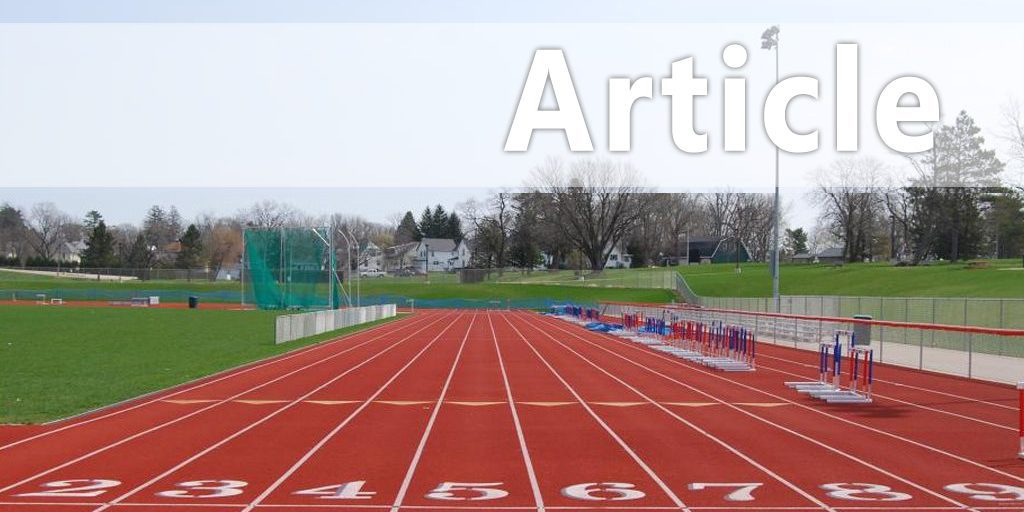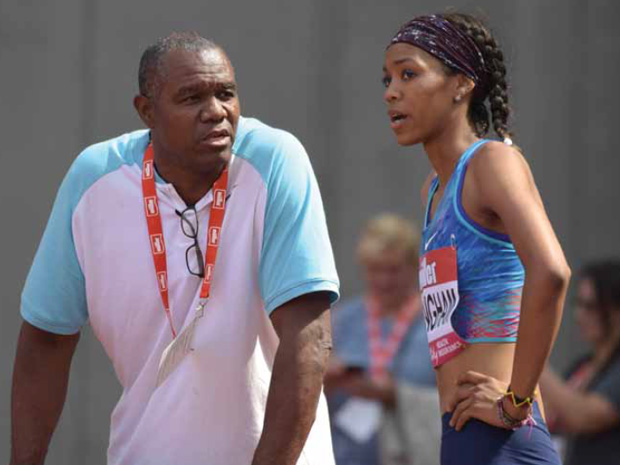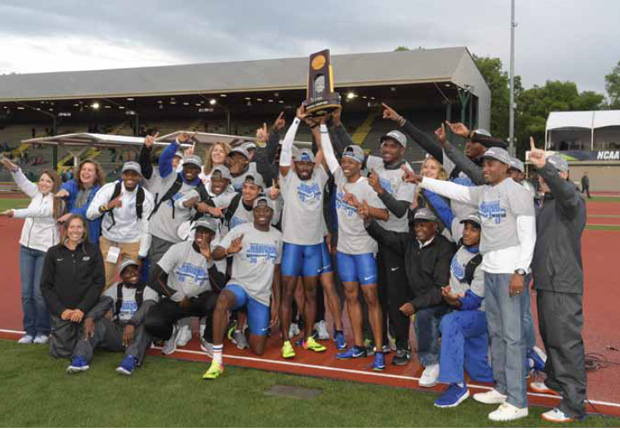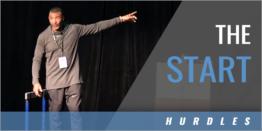| How Teams Fail - Is Your Program Headed Towards Destruction? |
| By: Marques R. Dexter, Ashley Fallaize, Nicole McCluney and Dr. Paul Schempp
Originally Published in: Techniques Magazine Provided by: USTFCCCA 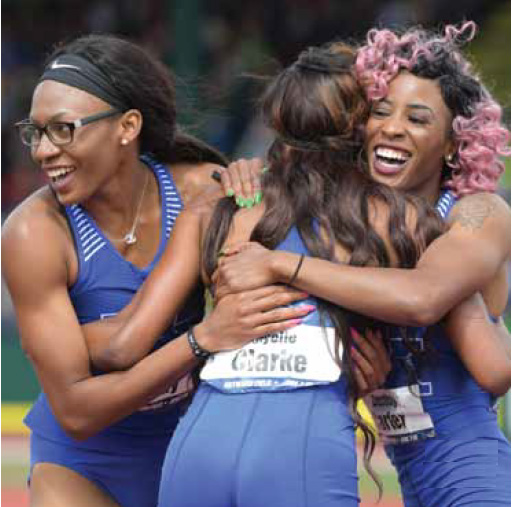 DOMINEERING PERSONALITIES Athletes are more likely to buy into a program led by a coach whose personality empowers rather than intimidates them. Unsuccessful programs are commonly led by coaches with domineering personalities who emphasize winning over the athletes' holistic growth (Vallee & Bloom, 2005). These coaches often experience stagnation in their professional development and believe they hold the answers to future success with no responsibility for current failures. Consequently, they feel they have all the knowledge they need, fail to seek growth opportunities, and see only those above them as capable of providing any relevant information. Furthermore, coaches with this mindset rarely engage in opportunities to self-reflect, ultimately leaving them to perpetuate the same mistakes they've made in the past. Empowering environments are a hallmark of traditionally successful programs. Within these programs, all members are shown respect regard-less of their ability or position. This culture enables athletes to emulate the attitudes and values that permit everyone to thrive both competitively and personally. Everyone's voice is valued, promoting an increased investment in the team's success by all stakeholders. And it all begins with the coach. To the members of your program, who you are as a person matters more than what you know as a coach. TOTALITARIAN LEADERSHIP Intimidating leadership styles, like domineering personalities, are detrimental to athlete development (Vallee & Bloom, 2005). Coaches demonstrating these styles are often found to be less confident in their abilities, convey contradictory messages, and display inconsistent, volatile behavior. The oppressive atmosphere created by totalitarian leaders is not conducive for athletes and personnel to perform their best. Ultimately, the suffocating and hostile environment leads to personnel turnover, ineffective recruiting, and a negative program reputation. Leaders of successful programs promote healthy, holistic athlete growth. They do so by maintaining composure in tough situations, keeping an open mind to change, and promoting a standard of positive interaction throughout the program. These coaches encourage a more democratic environment where ideas and individuals are safe, respected, and appreciated. Programs led by democratic leaders foster stronger commitment because the members feel greater autonomy and ownership in the organization. PRIZES OVER PEOPLE When an athlete's personal growth and independence is overshadowed by a coach who sees athletes solely as performers, team failure is eminent. In such situations, the athlete's worth is singularly measured by their contributions to the team's trophy case and, subsequently, the coach's glory. Programs rooted in this philosophy produce athletes who seldom develop outside their athletic identity and ultimately lack appreciation for who they are as people. Similarly, the staff feels unappreciated for who they are because they are valued only for what they do. Moreover, the support staff is considered just that - support, and nothing more. Production is valued over personal worth and dignity. This win at all cost philosophy permeates everything and everybody in these dysfunctional programs. In contrast, within successful programs, coaches aspire to equip athletes with skills, strategies, behaviors, and values to build champions both in and out of the sporting arena. Successful programs not only develop high-performing athletes, but purposely use the sporting experience to build confident, productive, and engaged members of society. To accomplish this, developing life skills and a sense of empowerment is an integral aspect of the program's culture. Empowerment consists of encouraging and valuing athletes' independence, beliefs, aspirations, individuality, and personal growth. Coaches convey these tenants by emphasizing emotional control, academic achievement, and the pursuit of excellence on and off the field. The values of honesty, open communication, respect, and trust underpin the interactions of all team members. Developing well-rounded individuals to be successful in life long after their playing days come to an end is a paramount priority of programs with traditions of success. DESTRUCTIVELY DISORGANIZED Empty vans, forgotten equipment, practices without players, lack of meal money, delinquent requests and reports, communication breakdowns, these are all too often found in teams that are destructively disorganized. Continual disarray causes stress and frustration, leaving athletes and staff more confused than confident. Two common causes of this systematic disarray are a) a lack of planning and b) established routines. Without planning to guide future actions or established routines to systematize everyday activities, team members are clueless as to what to do, when to do it, or how to do it. Chaos reigns supreme. It is particularly common for inexperienced coaches to become over-whelmed by the mountain of duties and obligations demanded of them. Typical behaviors of disorganized coaches include: a) failure to thoroughly plan practices, b) neglecting to include or provide adequate athlete recovery time, c) being unprepared for multidimensional demands of competition, d) limiting their plans with short-term objectives and e) failure to adequately undertake their leadership and administrative responsibilities. Coaches of successful teams spend extensive time planning practices tailored for athlete development and success. During practice, coaches and athletes are mutually engaged in activities to produce more favorable results during competitions. Carefully crafted routines provide regularly structured patterns of behavior to accommodate the everyday mundane tasks of team operation. For example, routines are established for athletes coming into the locker room, opening practice, preparing for a competition, receiving news from coaches, and other vital aspects that keep a team running smoothly. By incorporating these habits into their daily routines, coupled with the adoption of the personality traits and attributes mentioned earlier, coaches can create an organizational climate that allows all members to concentrate on the important task of athlete success in competition and not worry about the tiny details that only become noticeable when overlooked.
UNCOMMITTED COMMUNITY When coaches fail to build and nurture a community beyond the coaching staff and athletes, the organization finds little support from important resources. Failed teams seldom attract a committed fan base who take pride in not just in the victories, but the values and traditions of the organization. Without their attendance and support at competitions, many programs fail to maintain a vital financial base. Institutional financial support can only carry a program so far. Opportunities to fundraise and obtain donations from fans, alumni and boosters must be taken advantage of should a program wishes to achieve longevity and stability. Beyond just the financial, an uncommitted community provides no social or emotional support for the efforts of the coaches or the athletes. No one wants to play in an empty stadium. While it may take a village to raise a child, it takes a community to build and sustain a successful program. Sports teams are integrated into our society like extended families. Successful coaches and high performing athletes are celebrated in the community. When they are deviant, the repercussions are severe. More now than ever it is necessary for coaches to engage themselves and their program within their community positively. Successful programs also have coaches who understand how to recruit prospects effectively. It's not just about obtaining athletes with the best skills and athletic ability; coaches must screen for recruits who are coachable. Furthermore, it is paramount to identify recruits who exemplify traits resembling the team culture. Obtaining just one 'rotten apple' can have a significant effect on the stability of a team's culture and continued success. Traits found in prospects who make good recruits are those who are dependable, show a strong willingness to learn, and possess ample amounts of athletic ability, and are committed to the community. VISIONARY VAGUENESS If you can't see where you are going, it makes it tough to get anywhere. Athletic programs lacking a unifying and directing vision fail in providing the appropriate standards and expectations guiding individual and communal actions of the organization. Without a clear and workable vision, the organization becomes a rudderless ship at sea: with no intended direction to guide their efforts they simply float along at the whim of currents and tide—often with predictable and disastrous results. A vision begins with understanding a program's history. It is essential for coaches to research not only what went well in the program's past, but also identify what went wrong. The goal is to mold the organization in ways that will lead to success. Failed visions often stem from the absence of a coaches' understanding of problems previously stunting growth and inhibiting the success of the program. As the old saying goes, 'those who forget the past are doomed to repeat it.'
When a coach finally grasps these factors, they can begin building a vision based on the program's successful traditions and change the factors that caused failure. To build on a program's traditions, a coach must mine their philosophy - their personal and professional beliefs regarding what the program can and should be. In doing so, they develop a concrete vision containing appropriate programmatic goals and high standards of personal and athletic performance. For this to be authentic, it must represent the personal attributes and commitments of the coaches themselves. Successful program visions emanate from coaches who, themselves, possess high levels of passion and motivation. Coaches deficient in these traits will have little success in instilling them in others. Athletes and team personnel will not see any value in making sacrifices or dedicating themselves to a program led by passionless leaders or coaches who provide little direction or support for the team's success. They also will not embrace programs that lack direction, strategies for obtaining success, and standards for the actions required to realize that vision. In creating a successful vision, a coach must answer these questions with clarity and conviction: a) what are the benchmarks that will define the success of my program, b) what is it I want from my personnel (i.e., athletes, assistant coaches, and support staff) to gain from being a member of the organization, and c) what do I desire supporters and outsiders to see in our program? By answering these questions, a coach can then craft a team culture built on a core set of values and practices, determine the investments necessary for athlete holistic growth, and cultivate an environment where the individual contributions of all members produce a powerful collective action. Summary Reasons for consistent program failure are plentiful, but failed programs seem to have several common characteristics. Programs propelled into destruction are led by coaches whose domineering personalities and totalitarian leadership styles measure success in hardware and not humans. Contributing to their demise is a lack of organization, community commitment and most damaging--no vision. One of these characteristics alone can damage a program, but taken in combination they are lethal. Consequentially it is critical for the coach to continually monitor and assess these factors to ensure they do not become prevalent in the program. Building a successful program begins by recognizing the core values that will lead to success. As a focal point of the program, these values must be in harmony with the coach's personality and leadership style. The same principles and values subsequently guide the actions and decisions of athletes, coaches, and staff as they embrace the program's vision. These principles and values must also resonate with the personal commitments of all program members. From these core values, an organizational structure is created to support the actions and aspirations of the program members as they seek success. Encouragement and respect for all are pervasive. Prosperous programs are thus comprised of cultures where individuals are inspired to achieve, as both athletes and people. This requires strong organizational skills on the part of the coach to provide experiences that promote healthy, holistic athlete development. Additionally, coaches must ensure they foster positive relationships with the outside community. This includes the immediate family members of the program, the campus community and those outside the institution. By creating and maintaining a reputation as a program that is rooted and connected to their community, coaches will all but ensure long-term support. Lastly, connecting the dots; visualizing ways in which these principles can and will support each other will place the program on the path to success. REFERENCES Vallee, C. N. & Bloom, G. A. (2005). Building a Successful University Program: Key and Common Elements of Expert Coaches. Journal of Applied Sport Psychology, 17: 179-196. Photo Credit: Image of Sport Photo Marques R. Dexter is a doctoral student in the Department of Kinesiology at the University of Georgia and member of the Sport Instruction Research Laboratory. Prior to this, Dexter was an Assistant Track & Field coach, instructor and academic advisor at SUNY Cortland. Nicole McCluney is a doctoral candidate in the Department of Kinesiology at the University of Georgia and member of the Sport Instruction Research Laboratory. Additionally, Nicole serves as the Managing Editor of the Professional Association of Athlete Development Specialists (PAADS) Research Digest. Ashley Fallaize is a doctoral candidate in the Department of Kinesiology at the University of Georgia and member of the Sport Instruction Research Laboratory. Currently, Ashley is the Training & Education Manager at BlazeSports, overseeing their Institute for Adaptive Sports and Recreation. Dr. Paul Schempp is a Professor in the Department of Kinesiology at the University of Georgia and the Director of the Sport Instruction Research Laboratory. |
